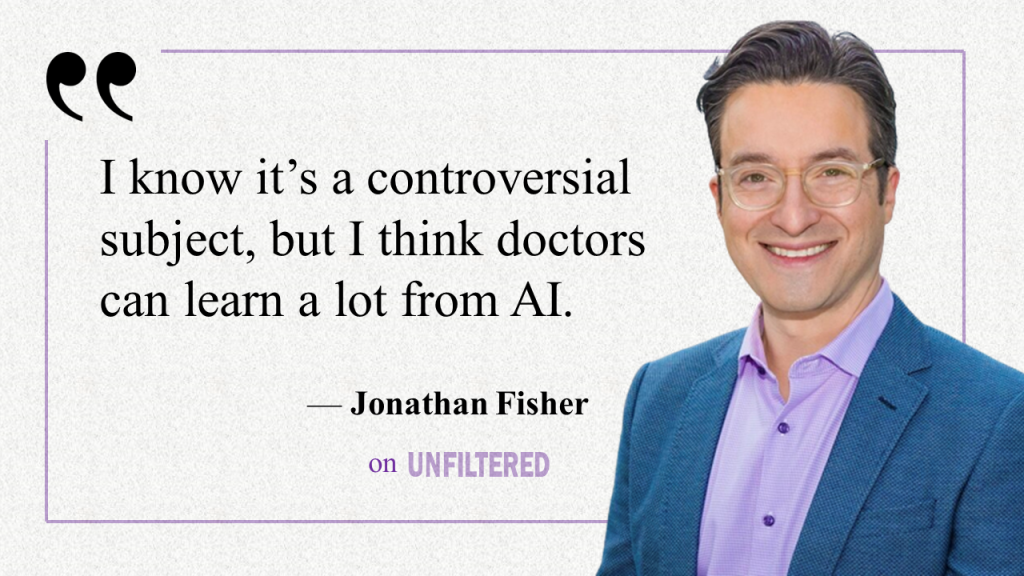Podcast: Play in new window | Download
Subscribe: Spotify | Email | RSS | More
This Unfiltered episode of Fixing Healthcare welcomes back Dr. Jonathan Fisher, a respected cardiologist and renowned advocate for physician well-being.
He joins cohosts Jeremy Corr and Dr. Robert Pearl to discuss the lines between human and machine.
ChatGPT is constantly challenging our understanding of what generative AI can accomplish. From acing medical-licensing tests to coding entire websites from simple prompts and even simulating talented musicians like Drake and Weeknd, the question now is: what can’t AI do?
Dr. Pearl posits that the singularity—a once-hypothetical future point at which technological growth becomes uncontrollable—may be nearing. Dr. Fisher points out that humans tend to overestimate their abilities and, therefore, are overlooking the many limitations of the human mind.
These observations dovetail with humanity’s existing anti-tech biases. Take self-driving cars, for example. Pearl notes that humans are often outraged when an autonomous vehicle kills a pedestrian and, yet, rarely is our outrage targeted at the 50,000 human-generated auto deaths that occur each year.
How will this thinking, and our very human biases, apply to medicine—both for patients and doctors?
To discover more, press play and check out these helpful links:
When you realize your favorite new song was performed by … AI (NPR)
AI has better ‘bedside manner’ than some doctors, study finds (The Guardian)
Will generative AI wreck or rekindle the doctor-patient relationship? (LinkedIn)
ChatGPT can help doctors—and hurt patients (Wired)
ChatGPT’s raises questions of medical security, privacy, bias (Forbes)
* * *
Fixing Healthcare is a co-production of Dr. Robert Pearl and Jeremy Corr. Subscribe to the show via Apple Podcasts or wherever you find podcasts. Join the conversation or suggest a guest by following the show on Twitter and LinkedIn.

